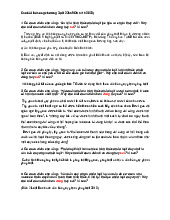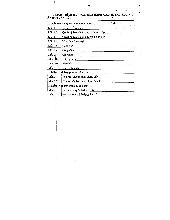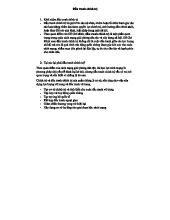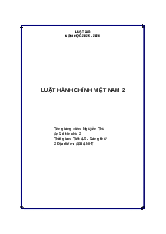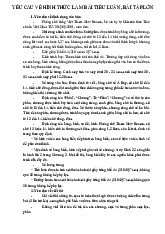


Preview text:
Society of Professional Journalists
Luật hành chính (Học viện Hành chính) Scan to open on Studocu
Studocu is not sponsored or endorsed by any college or university
Downloaded by Tr?n Ng?c Thanh (traphanhuong623@gmail.com)
Society of Professional Journalists
Improving and protecting journalism since 19091 1 C O D E OF ETHICS
Members of the Society of Professional Journalists believe ethical journalism strives to ensure the free
exchange of information is accurate, fair, and thorough. An ethical journalist acts with integrity.
The Society declares these four principles as the foundation of ethical journalism and encourages their
use in its practice by all people in all media.
1.1 SEEK TRUTH AND REPORT IT
• Diligently seek subjects of news coverage to
allow them to respond to criticism or
Ethical journalism should be accurate and fair. allegations of wrongdoing.
Journalists should be honest and courageous in
• Avoid undercover or other surreptitious
gathering, reporting, and interpreting
methods of gathering information unless information.
traditional, open methods will not yield
information vital to the public. Journalists should:
• Be vigilant and courageous about holding
• Take responsibility for the accuracy of their
those with power accountable. Give voice
work. Verify information before releasing it. to the voiceless.
• Remember that neither speed nor format
• Support the open and civil exchange of excuses inaccuracy.
views, even views they find repugnant. • Provide context.
• Provide access to source material when it is
• Gather, update, and correct information relevant and appropriate.
throughout the life of a news story.
• Avoid stereotyping. Journalists should • Identify sources clearly.
examine the ways their values and
experiences may shape their reporting.
• Never deliberately distort facts or context, including visual information.
Downloaded by Tr?n Ng?c Thanh (traphanhuong623@gmail.com)
1.2 MINIMIZE HARM
Ethical journalism treats sources, subjects, colleagues, and members of the public as human beings deserving of respect. Journalists should:
• Balance the public’s need for information against potential harm or discomfort. Pursuit of the news
is not a license for arrogance or undue intrusiveness.
• Show compassion for those who may be affected by news coverage.
• Recognize that legal access to information differs from an ethical justification to publish or broadcast.
• Weigh the consequences of publishing or broadcasting personal information.
• Balance a suspect’s right to a fair trial with the public’s right to know. Consider the implications of
identifying criminal suspects before they face legal charges.
• Consider the long-term implications of the extended reach and permanence of publication. Provide
updated and more complete information as appropriate.
1.3 ACT INDEPENDENTLY
The highest and primary obligation of ethical journalism is to serve the public. Journalists should:
• Avoid conflicts of interest, real or perceived. Disclose unavoidable conflicts.
• Refuse gifts, favors, fees, free travel, and special treatment, and avoid political and other outside
activities that may compromise integrity or impartiality or may damage credibility.
• Be wary of sources offering information for favors or money; do not pay for access to news.
Identify content provided by outside sources, whether paid or not.
• Deny favored treatment to advertisers, donors, or any other special interests, and resist internal
and external pressure to influence coverage.
• Distinguish news from advertising and shun hybrids that blur the lines between the two.
Downloaded by Tr?n Ng?c Thanh (traphanhuong623@gmail.com)
1.4 BE ACCOUNTABLE AND TRANSPARENT
Ethical journalism means taking responsibility for one’s work and explaining one’s decisions to the public. Journalists should:
• Respond quickly to questions about accuracy, clarity, and fairness.
• Acknowledge mistakes and correct them promptly and prominently.
• Expose unethical conduct in journalism, including within their organizations.
• Abide by the same high standards they expect of others.
Downloaded by Tr?n Ng?c Thanh (traphanhuong623@gmail.com)
Downloaded by Tr?n Ng?c Thanh (traphanhuong623@gmail.com)
1 http://www.spj.org/index.asp
Downloaded by Tr?n Ng?c Thanh (traphanhuong623@gmail.com)
Document Outline
- 1.1 Seek Truth and Report It
- 1.2 Minimize Harm
- 1.3 Act Independently
- 1.4 Be Accountable and Transparent



